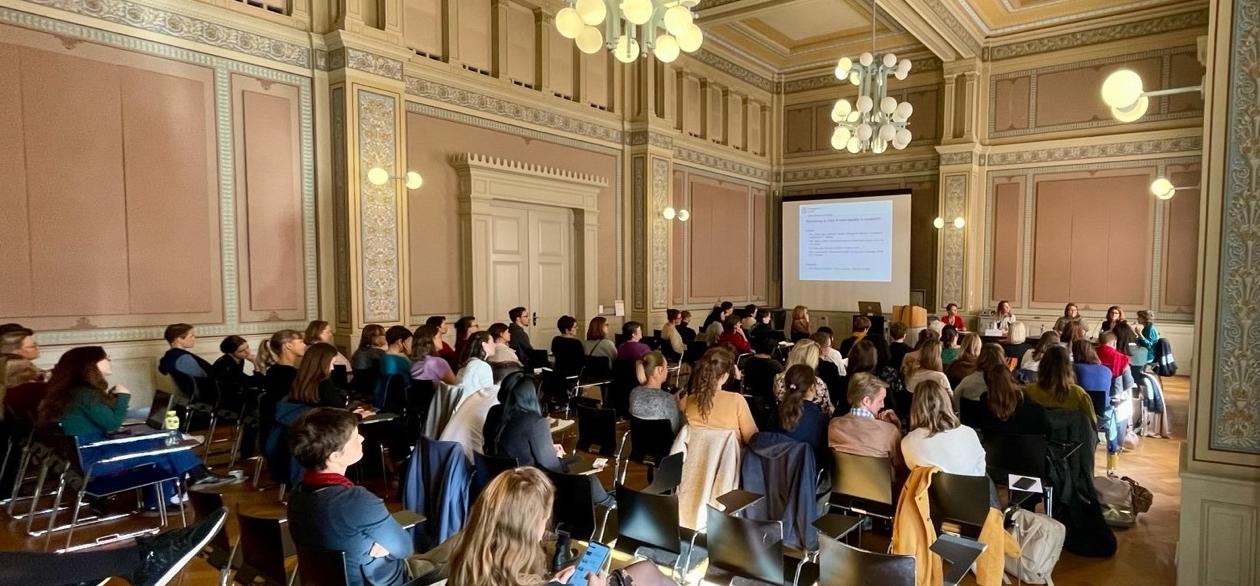Navigation auf uzh.ch
Navigation auf uzh.ch
Young academics and professors explored the landscape of sponsorship within academic circles at an event organized by the H.I.T. Program together with the Divmed Project.

On the 27th of October, young academics and professors gathered to explore the ambiguous landscape of sponsorship within academic circles. Catalyzed by Sponsorship in academic medicine in Switzerland, a paper by Beate Grass and Beatrice Natal in 2022, theH.I.T. Program andDivmed managers organized an event on the topic, with support from the UZH Office for Gender Equality and Diversity and CHESS.
The afternoon began with a keynote by Prof. Heather Hofmeister. She reflected on the differences between mentoring and sponsorship, highlighting the latter’s potential impact and pitfalls. The audience was provided with much food for thought, also by revising their personal experiences with sponsoring.

Following this, the panel guests - Prof. Carole Clair, Prof. Jamie J. Gloor, Prof. Bea Latal, and Prof. Laura Nyström - shared their experiential insights, uncovering the often implicit or unconscious dynamics of sponsorship and its influence on career advancements.
The following discussion, sparked by questions from the audience, fluctuated between viewing sponsorship as a progressive tool for equality or as a problematic perpetuation of exclusive networks. Additionally, the conversation delved into managing imposter syndrome and addressing the double standards that often accompany these dynamics.

The conversation unveiled that sponsorship itself is an inevitable force in academic circles. However, it emphasized the critical need for increased awareness. This shift requires sponsors to examine their unconscious biases, and for institutions to establish frameworks that counteract discriminatory practices.
Although there was no conclusion on categorizing sponsorship as exclusively positive or negative, it became clear that there is a necessity for open dialogues and critical introspection at both individual and institutional levels. How to transform sponsorship into a tool that fosters transparency and eliminates systemic biases remains an ongoing challenge. The substantial interest in the event indicated that this conversation is greatly needed within the scholarly community.
By Nuria Piller